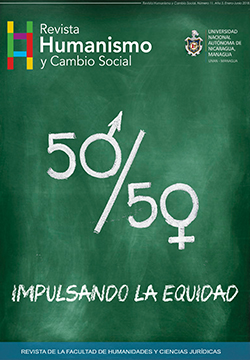Female political equality in Nicaragua: public strategy and social change during the 2007-2016 period.
DOI:
https://doi.org/10.5377/hcs.v0i11.8728Keywords:
Gender equality, women, social change, power, political participationAbstract
This article is the result of a documentary research. Thus, source documents of different nature, about female political equality in Nicaragua, specifically in its character of public national strategy, were analyzed from a qualitative point of view. The historical and cultural context in which Nicaraguan society interacts in the current political system is taken into account. Gender relations were a key factor in the study of political equality and thus, are an integral aspect of the analysis. The gender perspective became a fundamental analysis tool to facilitate a critical and cross-cutting view of gender and power relations. The main findings reflect that the structure of the national gender strategist during the period 2007-2016 is expressed in three central aspects: equality before the law through the approval and reforms of a set of laws in favor of women; affirmative actions expressed in the implementation of social programs and a gender cross-cutting national policy and part of the national human development plans, as well as, a wide presence and inclusion of women in different instances of the State.
Downloads
2065




